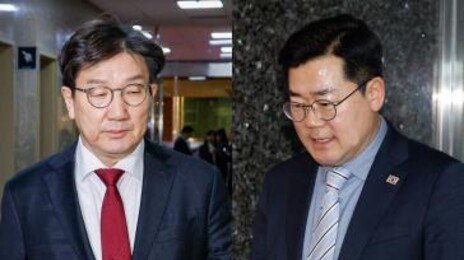??, ??? ????? ?? ??? ??
??? ??? ?? ? ??? ??? ??
??? ?? ?? ??? ????? ??

?? ??????? ???(???19)? ?? ??? ???? ??? ???? ??? ??. ????? ?? ???? ??? ? ???? ?? ???. ?? ??? ???? ?? ?? ?? ???. ?? ?? ???? ??? ??? ?? ??? ??? ??? ? ??? ????.
?? ???? ??? ??? ??? ??? ???? ??? ?? ?? ?? ???. 10? ?? ?? ??? ???? 8000?? ??? ??. ???? ?? 2? ?? ?? ?? ????. ???? ?? ??? ? ??? ???. ?? ??? ?? ??? ?? ??? ?? ?? ??. ?? ??? ?? ??? ??? ?? ??? ??? ???.
?? ???? ?? ??? ??? ?? ‘????? ?? ? ???’?? ???. ?? ???? ??? ??? ???? ??? ????. ??? ??? ?? ?? ???? ??? ???? ??. 2020?? ??? ???? ??? ?? ??? ??? ???? ? ???? ???. 2020?? ? ?????? ?? ???? ?? ‘????’?? ??? ???? ?? ??? ??? ???? ? ???.
????? ?? ??? ??? ‘?? ??? ??’ ??? ??? ???? ?? ???????? ????. ?? ??? ??? ??? ??? ??? ?? ??? ?? ‘???’?? ????? ??? ??? ???? ?? ‘????’? ‘??? ??? ??? ?????’??? ??? ??.
??? ??? ???? ??? ?? ?? ???? ‘????’? ???? ? ? ??. ?? ??? ???? ??? ??? ?? ????? ?? ??? ???? ?? ?? ????? ?? ?? ??? ???? ??. ?? ??? ? ? ?? ??? ?? ???.
? ????? ?? ??? ??? ?? ??? ??? ???? ??? ?? ? ??? ??? ?? ??? ??? ?? ???. ??? ????? ??? ?? ‘?????’? ??? ???. ??? ??? ??? ???? ??? ??? ? ?? ?? ??? ????? ??? ???? ????.
??? ??? ?? ‘????’ ? ‘??? ????’?? ?? ???? ??? ???? ??? ???? ??. ?? ????? ? ?? ??? ??? ?? ??? ?? ??? ?????? ‘(??? ??) ?????? ??? ???? ??? ?? ? ?? ? ??’? ??? ??. ??? ?? ?? ?????? ?????. ??? ???? ??, ??? ???? ? ? ?? ?? ?? ?? ??? ?? ???.
?? ???? ??? ?? ??? ????? ???? ???? ????? ??? ? ??? ??? ?? ???? ??? ???. ??? ??? ?? ???? ?????? ??? ???? ????. ?? ?? ?? ??? ???? ?? ???? ‘??? ???? ?? ?’ ‘??? ???? ?? ?’?? ??? ?? ?? ? ???.
??? ?? ???? ?? ???? ??? ? ??? ?? ??? ???? ??. ?? ???? ???? ‘???’??? ?? ? ?? ??? ?? ????? ??? ??? ???? ??. ?? ??? ?? ??? ?? ? ??? ?? ??? ?? ??? ?? ? ?? ???.
??? ???19?? ??? ??? ??? ????? ?? ?? ??? ??? ???? ?? ? ??? ?? ????. ??? ‘n??’ ??? ???? ??? ??? ? ??? ???? ?? ???? ?? ?? ??? ?? ? ? ??.
2020?, ??? ??? ? ??? ?? ???. ??? ? ??? ??? ??? ?? ???? ? ? ??? ???? ??? ???? ??? ?? ??.
COVID-19 is putting the system and spirit of every country to the test. Tragically, western countries have largely been failing. Being from the UK, this isn’t necessarily a surprise to me, since I could have guessed what the initial reaction to such a crisis by government and the public would be.
We’re improving now, but we’ve already paid too heavy a price for our earlier dithering. We have 5000 dead, and by the time you read this, it may be double. Later today I will call my mother, who has spent the past two weeks shut in her house. Every time I talk to her, she cries. It’s a similar story for everyone in the UK now; the effect on mental health and the economy are going to be colossal.
Korean friends now look at the west and say, ‘we expected better of you’. And naturally, the media in my country is now full of praise for the Korean response. Which brings me to my main point: 2020 is going to be a turning point in how the west sees itself, and how it sees East Asia. It should also be a turning point for how Korea sees itself, and a chance to start breaking free of ???? towards western countries.
There are many, many people in Korea who have internalised the idea of western superiority. The best education is an American one, and a ‘global standard’ always a western one. If a Korean celebrity receives recognition in the west, the level of joy shown by the Korean media is embarrassingly high. This overall tendency has been mirrored by western commentators, who may see Korea as, patronisingly, a high-achieving student. In the event of disagreement with the US, it isn’t simply a difference of opinion, but rather of ‘a(chǎn)nti-Americanism’ and ingratitude.
But if Korea is a student, maybe it has already overtaken its teacher in plenty of respects. The social contract Korea has at present is one that my country had, then mostly lost, and is now trying to reconstruct. It’s one that the US has never had. The state provides a baseline level of protection (including healthcare) and competence, and in return, the people put a baseline level of trust in it. It isn’t Hobbes’ Leviathan, because it is also democratic and transparent enough to discourage the abuse of that trust.
There has long been a suspicion of government in the English speaking world, be it left or right, accompanied by a ‘you can’t tell me what to do’ mentality. There has also emerged since the 1980s a lack of belief that such a thing as society even exists – a corruption of the individualism that was one of our strongest achievements. In a coming era of environmental disasters and rapidly globalised contagious diseases, we will need to fix that or suffer.
These days were are often exposed to the dangerous, false dichotomy of authoritarianism versus ‘chaotic’ democracy. A friend locked down in the US recently half-jokingly told me he’d rather be ruled by Xi Jinping than Donald Trump. But dictatorship is chaotic too, because corruption, arbitrariness and an inability to know what is true or false are inherent to it. Most importantly though, we need to realise that we don’t have to make a black or white choice between the two. A mature society is democratic but also sticks together in a crisis. This is why, for the very first time, I hear western friends saying things like, ‘we should be more like Korea’ or ‘we should be more like Taiwan’.
Really though, we should all be more like each other – or rather take the best practices from each other - whilst having confidence in ourselves. The notion of Western superiority, internalised by both west and east, and underpinned by the notion of the ‘a(chǎn)dvanced' nation’, has stopped us from doing that. There are simply good and bad practices, rather than good and bad countries (at risk of going off-topic, let’s have public health done Korean style, and punishment of sex offenders done American style, for instance). The world may seem a scarier place in 2020, but we can at least envision a more equal relationship between east and west as a by-product of these difficult times.
We’re improving now, but we’ve already paid too heavy a price for our earlier dithering. We have 5000 dead, and by the time you read this, it may be double. Later today I will call my mother, who has spent the past two weeks shut in her house. Every time I talk to her, she cries. It’s a similar story for everyone in the UK now; the effect on mental health and the economy are going to be colossal.
Korean friends now look at the west and say, ‘we expected better of you’. And naturally, the media in my country is now full of praise for the Korean response. Which brings me to my main point: 2020 is going to be a turning point in how the west sees itself, and how it sees East Asia. It should also be a turning point for how Korea sees itself, and a chance to start breaking free of ???? towards western countries.
There are many, many people in Korea who have internalised the idea of western superiority. The best education is an American one, and a ‘global standard’ always a western one. If a Korean celebrity receives recognition in the west, the level of joy shown by the Korean media is embarrassingly high. This overall tendency has been mirrored by western commentators, who may see Korea as, patronisingly, a high-achieving student. In the event of disagreement with the US, it isn’t simply a difference of opinion, but rather of ‘a(chǎn)nti-Americanism’ and ingratitude.
But if Korea is a student, maybe it has already overtaken its teacher in plenty of respects. The social contract Korea has at present is one that my country had, then mostly lost, and is now trying to reconstruct. It’s one that the US has never had. The state provides a baseline level of protection (including healthcare) and competence, and in return, the people put a baseline level of trust in it. It isn’t Hobbes’ Leviathan, because it is also democratic and transparent enough to discourage the abuse of that trust.
There has long been a suspicion of government in the English speaking world, be it left or right, accompanied by a ‘you can’t tell me what to do’ mentality. There has also emerged since the 1980s a lack of belief that such a thing as society even exists – a corruption of the individualism that was one of our strongest achievements. In a coming era of environmental disasters and rapidly globalised contagious diseases, we will need to fix that or suffer.
These days were are often exposed to the dangerous, false dichotomy of authoritarianism versus ‘chaotic’ democracy. A friend locked down in the US recently half-jokingly told me he’d rather be ruled by Xi Jinping than Donald Trump. But dictatorship is chaotic too, because corruption, arbitrariness and an inability to know what is true or false are inherent to it. Most importantly though, we need to realise that we don’t have to make a black or white choice between the two. A mature society is democratic but also sticks together in a crisis. This is why, for the very first time, I hear western friends saying things like, ‘we should be more like Korea’ or ‘we should be more like Taiwan’.
Really though, we should all be more like each other – or rather take the best practices from each other - whilst having confidence in ourselves. The notion of Western superiority, internalised by both west and east, and underpinned by the notion of the ‘a(chǎn)dvanced' nation’, has stopped us from doing that. There are simply good and bad practices, rather than good and bad countries (at risk of going off-topic, let’s have public health done Korean style, and punishment of sex offenders done American style, for instance). The world may seem a scarier place in 2020, but we can at least envision a more equal relationship between east and west as a by-product of these difficult times.
??? ?? ? ?????? ?? ???·??? ‘???’ ??
???? >
??
?? ???? ?????!
-

????
??
-

??? ??
??
-

?????
??
-
- ???
- 0?
-
- ???
- 0?
-
- ???
- 0?
![‘?? ?? ???’? ???[?? ??/???]](https://dimg.donga.com/a/180/101/95/2/wps/NEWS/IMAGE/2020/04/15/100658025.1.jpg)



?? 0